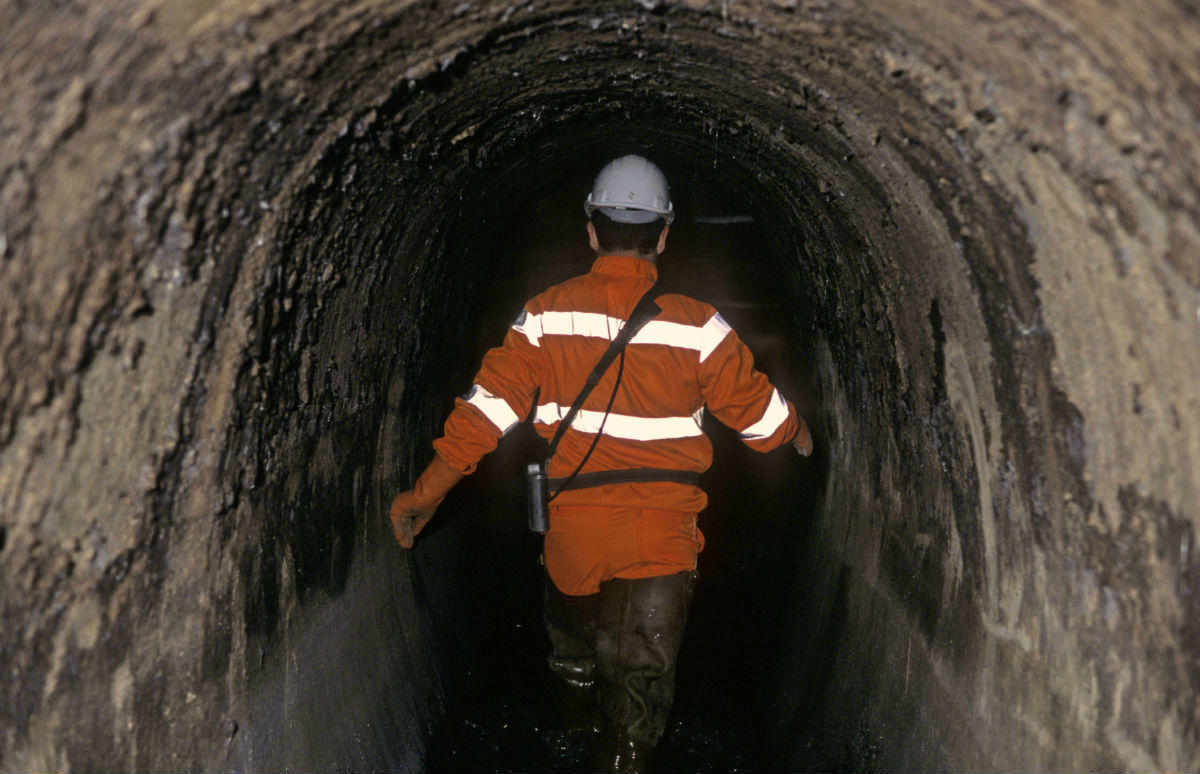Sewer workers are exposed to dangerous working conditions from toxic and flammable gases.
Sewer workers may spend large amounts of time under a tunnel, in a sewer, or in other types of confined places. These types of jobs are exposed to a higher risk of work-related illness and accidents, such as exposure to the risk of fire hazards due to the presence of flammable gases. Many accidents occur when workers inhale toxic gases.
FREE CONSULTATION

30 YEARS EXPERIENCE
OVER $100 MILLION COLLECTED
ONLY WORK COMP
This is the lawyer you want to hire! Just read the reviews. It is all true. Incredible! He will get you every dollar of lost wages, get you every ounce of medical treatment, and get you the highest possible award from the Division of Workers Compensation.
These reviews are correct. This attorney is incredible. He knows workmans compensation, fights for denied treatment and wages, and gets your on the job injury rated by the best doctors. I will be using him from here on our great experience.
The Law Office of James M Hoffmann was referred to me from a previous client, that was extremely impressed, with his service and outcome.
I met with Jim Hoffmann to discuss a car accident. Three cars were involved, my car was totaled, and I was seriously injured. After meeting with Jim the very first time, I immediately felt comfortable, and knew that he would have my back, and would fight for me.
Throughout my journey, I dealt with a lot of pain and several issues that lasted for years. During this time I had to contact Jim and Jamie (Jim’s wonderful assistant) many times. Every time I sent an email with questions, I received feedback extremely quickly!
I feel Jim negotiated a great settlement for me!
The Law Office of James Hoffman will be the first place I contact if I ever need his help again!
Suzanne Charles
Compensation? Get this lawyer. Simply better than all the rest.
Exposure to Toxic Gases
Those who work in sewers are more likely than other underground workers to suffer an illness or injury due to exposure to toxic gases. This is because sewers or underground channels have drains that release toxic gases as waste matters decompose. Toxic gases released from sewers contain hydrogen sulfide. Hydrogen sulfide is released when bacteria starts decomposing organic materials. When a worker inhales hydrogen sulfide, he or she may experience several symptoms, including:
- loss of consciousness
- suffocation
- breathing problems
- loss of the sense of smell
- paralysis
Exposure to Hydrogen Sulfide
Initially, a worker may smell an odor similar to a rotten egg when exposed to hydrogen sulfide. In addition to hydrogen sulfide, a sewer may release other harmful gases, such as carbon monoxide, nitrogen oxides, and ozone. Some gases, like carbon monoxide, do not have any odor or color. As a result, the worker may not be aware of exposure to harmful, toxic gases until serious symptoms develop. Long-term exposure to toxic gases, such as carbon monoxide, chlorine, hydrogen sulfide, hydrogen cyanide, and arsine can be lethal.
Preventing Work-Related Accidents
Every year, over 5,000 workers get injured and another 50 deadly accidents occur in confined places. The Occupational Safety and Health Administration (OSHA) released regulations on Permit-Required Confined Spaces in January 1993 in an attempt to prevent accidents due to exposure to harmful toxic gases in a confined place. OSHA guidelines require that workers use a self-contained breathing apparatus (SCBA) while working in a sewer or any confined place that has less than 19.5 percent oxygen concentration in the air.
An employer is responsible for making sure that working conditions inside a sewer do not pose a life-threatening risk to their workers. Workers should be equipped with the appropriate tools to avoid accidents and illnesses due to exposure to toxic gases in a sewer or any confined place.
Missouri Workers’ Compensation Benefits
Sewer workers who get injured due to toxic gas exposure can claim workers’ compensation benefits. Our Missouri work comp attorney can help navigate the system and ensure that you receive your rightful benefits. Call The Law Office of James M. Hoffmann at (314) 361-4300.
Workers & Industry
Workers | Industry
Airline Injuries
Auto Mechanic Injuries
Baggage Handler injuries
Bricklayer Injuries
Building Construction Injury
Carpenter Injury
Chemical Plant Accident
Coal Mining Accident
Commercial Food Industry Work Injury
Commercial Truck Accident
Concrete Worker Accident
Construction Accident
Cosmetologist Work Injury
Electric Company Workers Injured
Injured Electrical Worker
Electrician Accident
Elevator Worker Accident
Factory Accident
Farm Accident
FedEx Truck Accident
Firefighter Injuries
Processing Plant Injuries
Government Workers Comp
Healthcare Injuries
Injured Work From Home
Hospital Work Injury
Hotel Workers Injuries
Industrial Workplace Accidents
Iron Worker Accident
Janitor Injuries
Union Worker Accidents
Laboratory Accident
Manufacturing Injuries
Meat Packing Injuries
Metal Fabrication Accidents
Mining Accident
Working Multiple Jobs
Nail Salon Work Injury
Work-Related Accidents on Night Shift
Nurse Injured at Work
Nursing Home Workers Injury
Office Accident
Oil Field Injury
Outdoor Workers Injured
Pipe Fitter Occupational Injury
Plumber Accident
Post Office Accident
Poultry Work Injury
Public Safety Officer Injuries
Railroad Worker Injuries
Recycling Plant Accidents
Restaurant Injury
Retail Accidents
Road Construction Accident
Roofing Accident
Sanitation Worker Injuries
Seasonal Worker Injured
Security Accident
Sewer Accidents
Summer Job Work Injury
Teacher Injured
Textile Mill Accidents
Transit Workers Accident
Truck Driver Injuries
Underground Mining Accidents
Utility Worker Accident
Veterinarian Injured
Warehouse Injuries
Window Cleaner Accident

